Photo gallery U.S. Cyber Command visit highlights UW–Madison’s leadership in cyber research and education
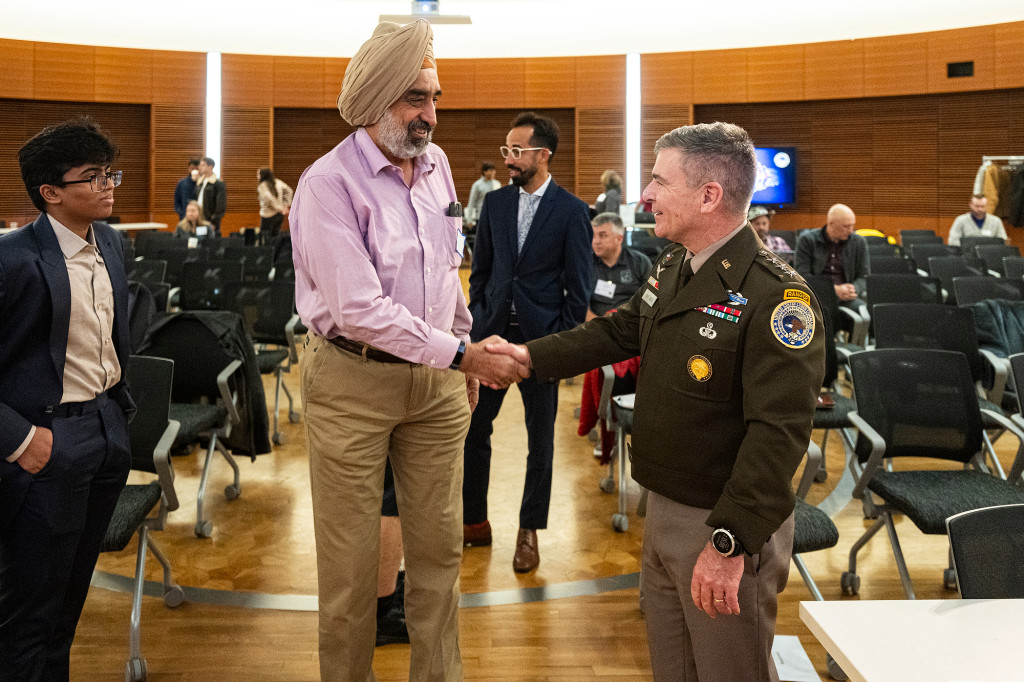
Lt. Gen. William J. Hartman, deputy commander of U.S. Cyber Command, meets with members of the UW community, including Gurindar Sohi (center left), a UW professor of electrical and computer engineering and computer sciences. Photo: Bryce Richter
The University of Wisconsin–Madison plays a leading role as a research and education partner for national cybersecurity. It reinforced this commitment recently by welcoming to campus a delegation from the United States Cyber Command (USCYBERCOM), which is responsible for the Department of Defense’s cyberspace capabilities.
On Nov. 21, Lt. Gen. William J. Hartman, deputy commander of USCYBERCOM, and his colleagues at federal intelligence agencies visited research labs across campus before attending a day of events meant to highlight UW–Madison’s cyber partnership, strengths in research and ability to prepare students for the workforce. This included a USCYBERCOM Tech Talk featuring UW–Madison faculty members researching advanced communication technologies and other cyber-related areas.
It was the first-ever USCYBERCOM Tech Talk hosted by an academic institution. UW–Madison is a founding member of USCYBERCOM’s Academic Engagement Network — a group of higher education institutions with degree programs and research portfolios that align with the military command’s mission. Earlier this year, the university was also designated as a National Center of Academic Excellence in Cyber Research by the National Security Agency.
For more information about UW–Madison’s Cyber Programs and Designations, visit https://go.wisc.edu/cyber.
Here are highlights from the visit:
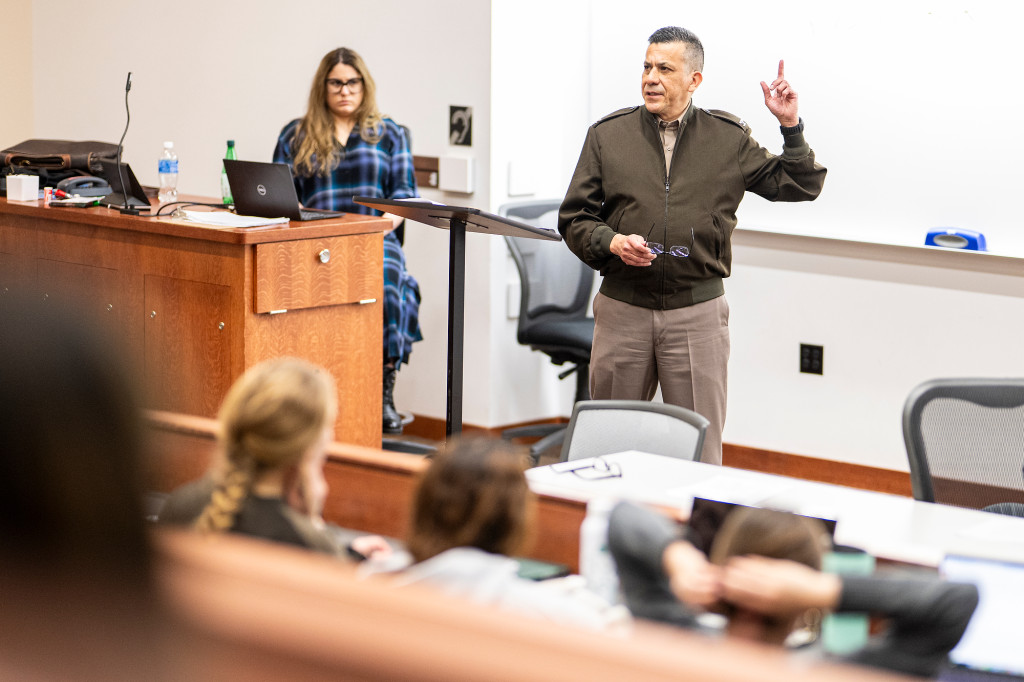
The day before the official visit began, Col. Raul Rodríguez-Medellin (center), deputy director of the Office of Academic Engagements at USCYBERCOM and a UW–Madison alumnus, visited a public policy class in the La Follette School of Public Affairs. Photo by: Bryce Richter
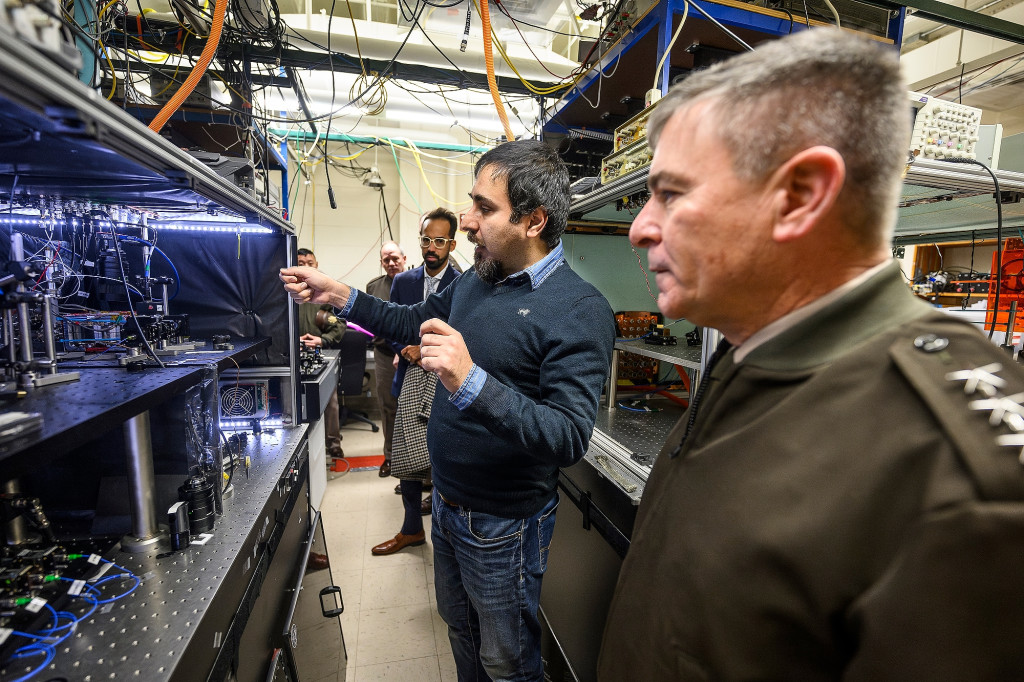
Members of the federal delegation started their visit by meeting with researchers in their laboratories in the Department of Physics and the College of Engineering to learn about their work on quantum computing, cybersecurity and other areas of interest to USCYBERCOM. At Chamberlin Hall, physicist Akbar Safari (center) showed Lt. Gen. William J. Hartman and colleagues a quantum network experiment. The network holds promise for applications in remote quantum sensing and quantum communication, which could improve intelligence gathering, surveillance and secure communication. Photo by: Althea Dotzour
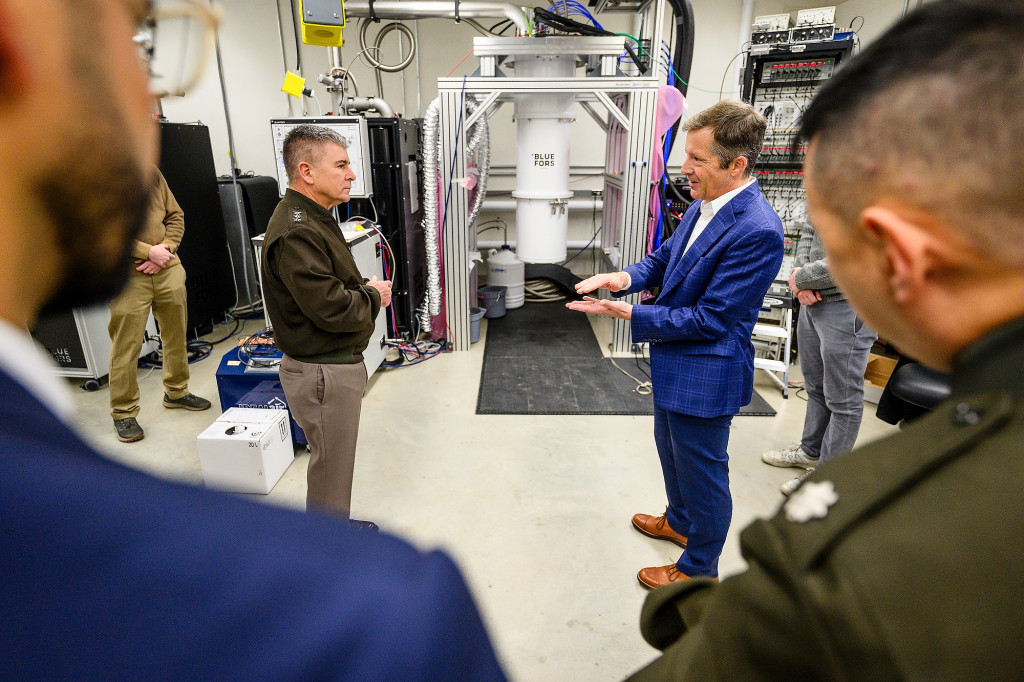
The delegation also learned about the required conditions for quantum computing — namely, extremely low temperatures. Physics professor Mark Eriksson (right) described to Hartman why it’s essential to operate silicon-based qubits — the basic unit of quantum information — at temperatures of 0.1 Kelvin. The machine in the background is a dilution refrigerator that’s part of UW’s Q-NEXT quantum center, which is funded by the U.S. Department of Energy. Photo by: Althea Dotzour
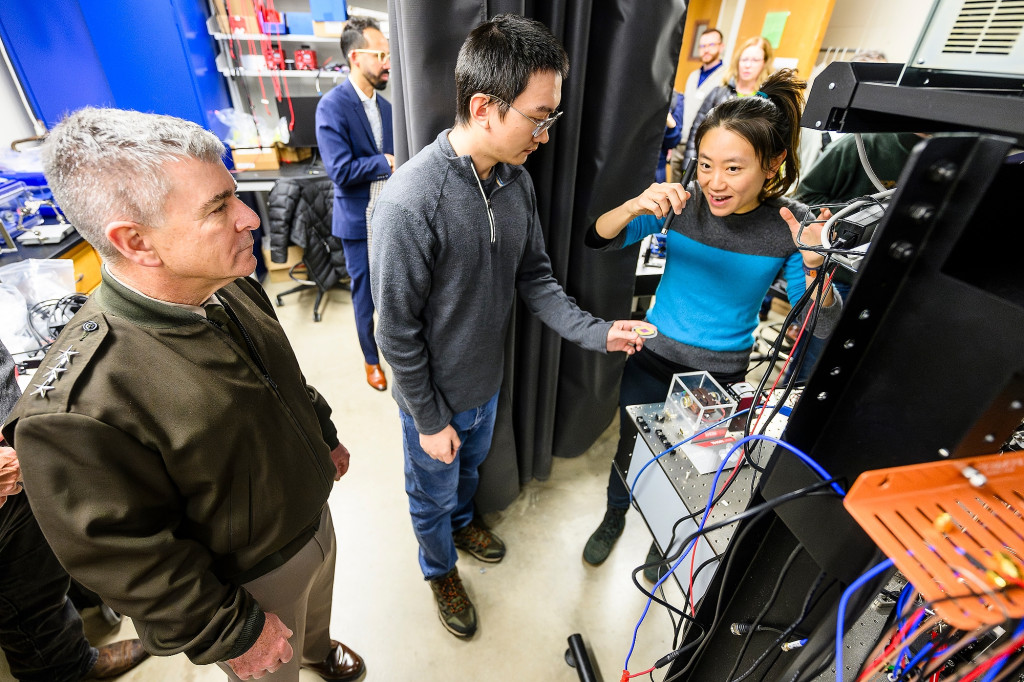
At the College of Engineering, Jennifer Choy (right), a professor of electrical and computer engineering, and doctoral student Xuting Yang (center) demonstrated how a metallized grating chip on silicon can be used in place of free-space optics to cool and trap atoms to facilitate quantum applications. Photo by: Althea Dotzour
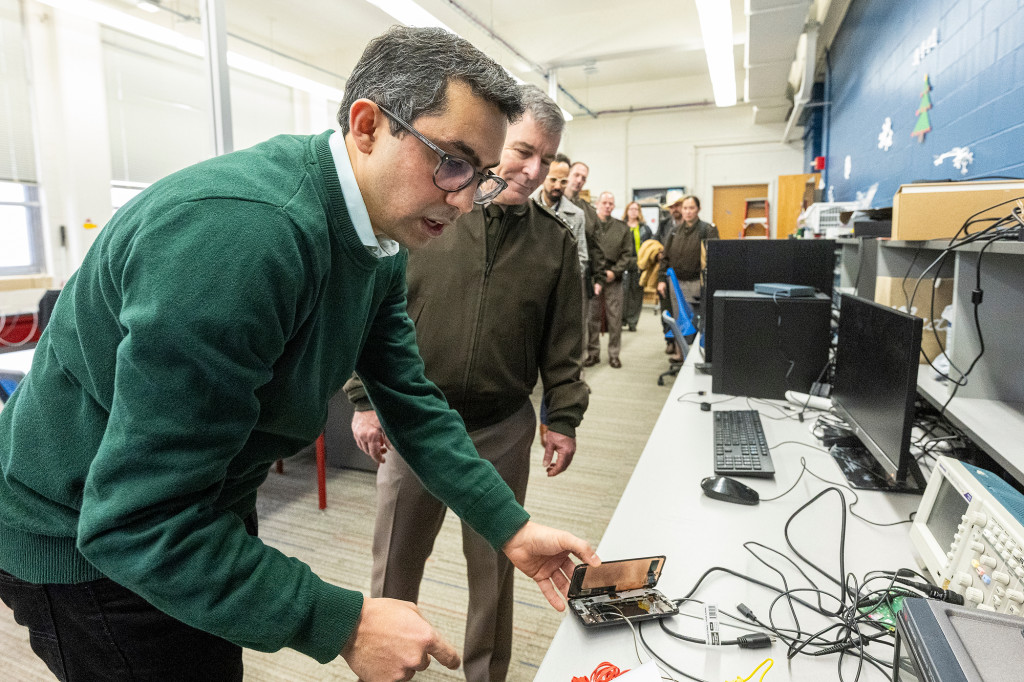
Kassem Fawaz, a professor of electrical and computer engineering, demonstrated his lab’s work related to digital privacy and smartphone apps. Fawaz and his colleagues have reverse engineered the TikTok and Instagram smartphone apps to uncover what kinds of information they store about users based on uploaded images. They have also developed a non-digital method for spoofing voice recognition software using 3D-printed nylon pipes. Photo by: Bryce Richter
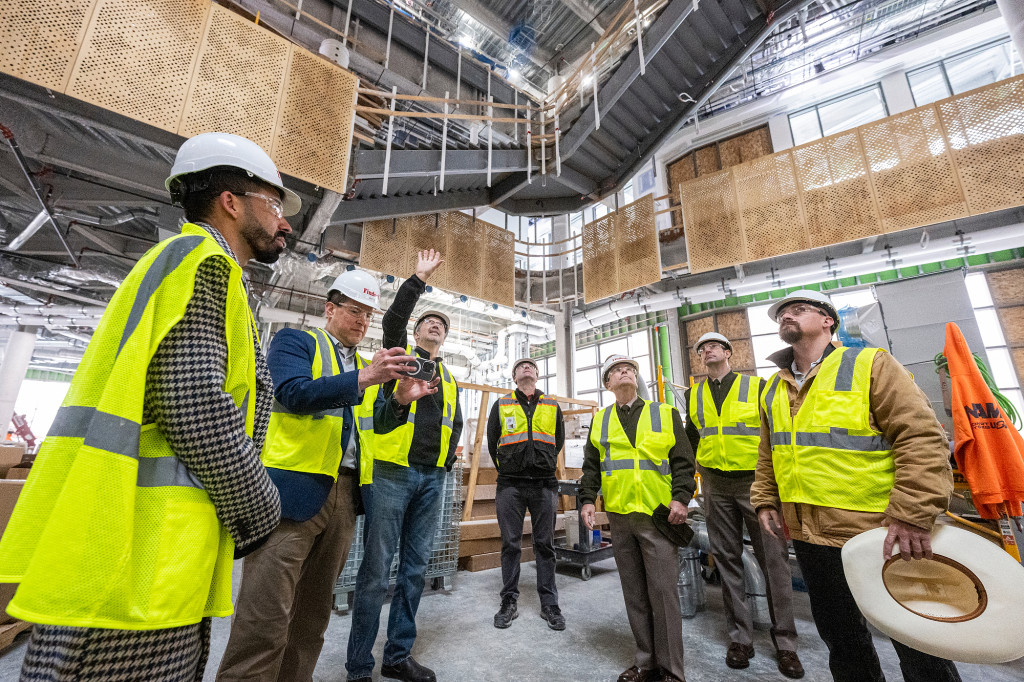
The delegation also received a behind-the-scenes tour of Morgridge Hall, the future home of the School of Computer, Data & Information Sciences, which is set to open in summer 2025. Photo by: Bryce Richter
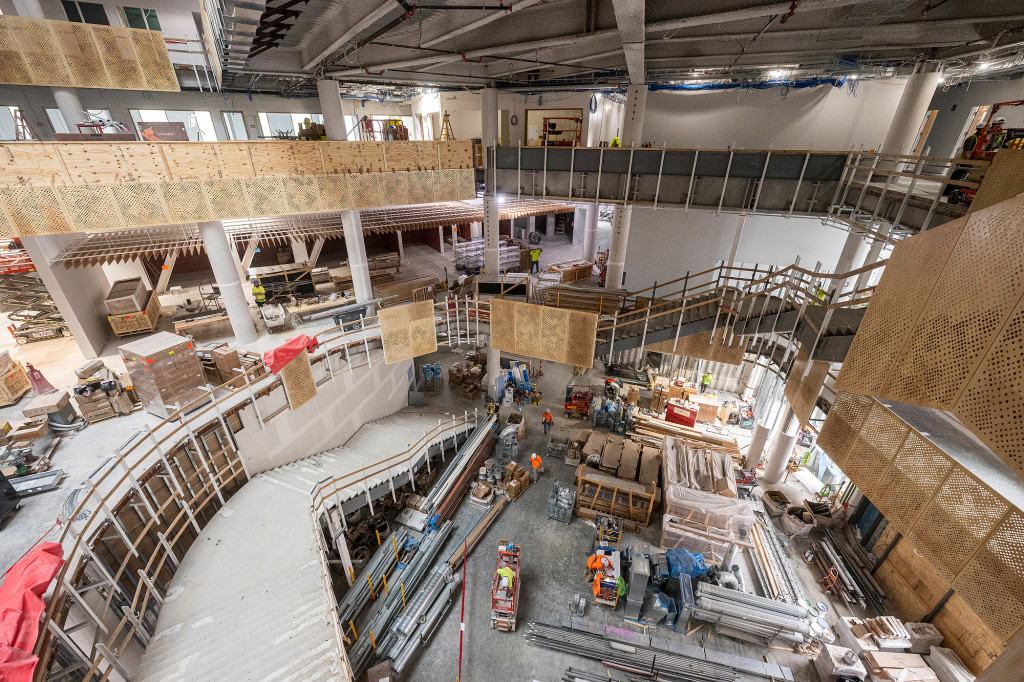
The state-of-the-art building will allow UW to continue attracting top faculty and students to its increasingly popular programs in computer science, data science and related fields. Photo by: Bryce Richter
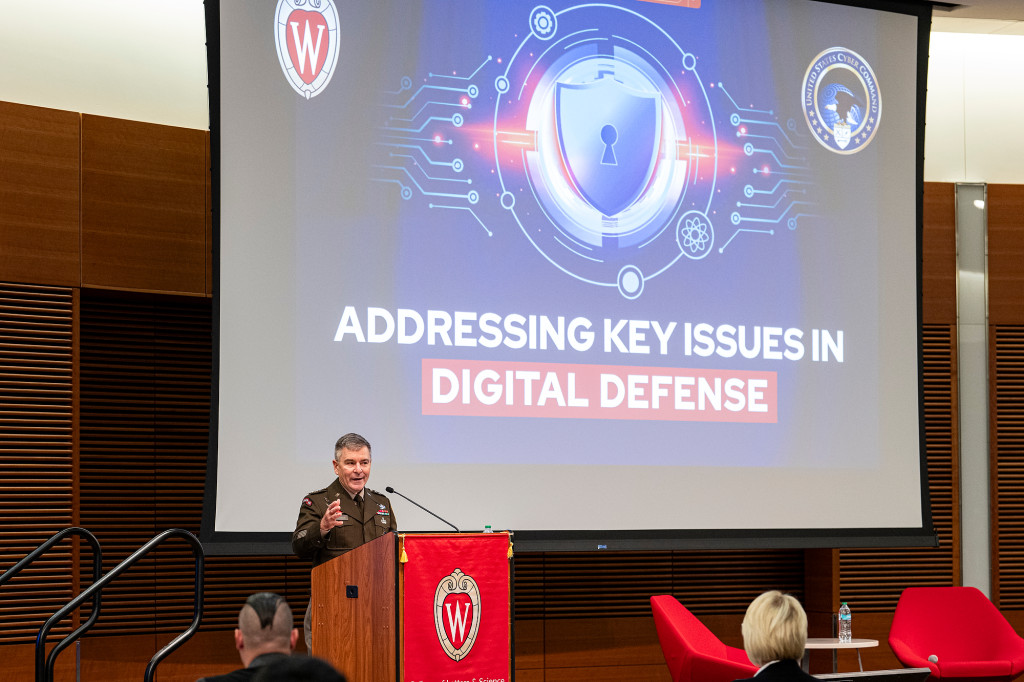
Following the tours, Hartman delivered a keynote address to UW students, faculty and researchers at the DeLuca Forum, in which he made a case for continuing to bolster relationships between USCYBERCOM and top research universities like UW–Madison. “We’re not only building partnerships — we’re building the next generation of cyber leaders,” Hartman said. Photo by: Bryce Richter
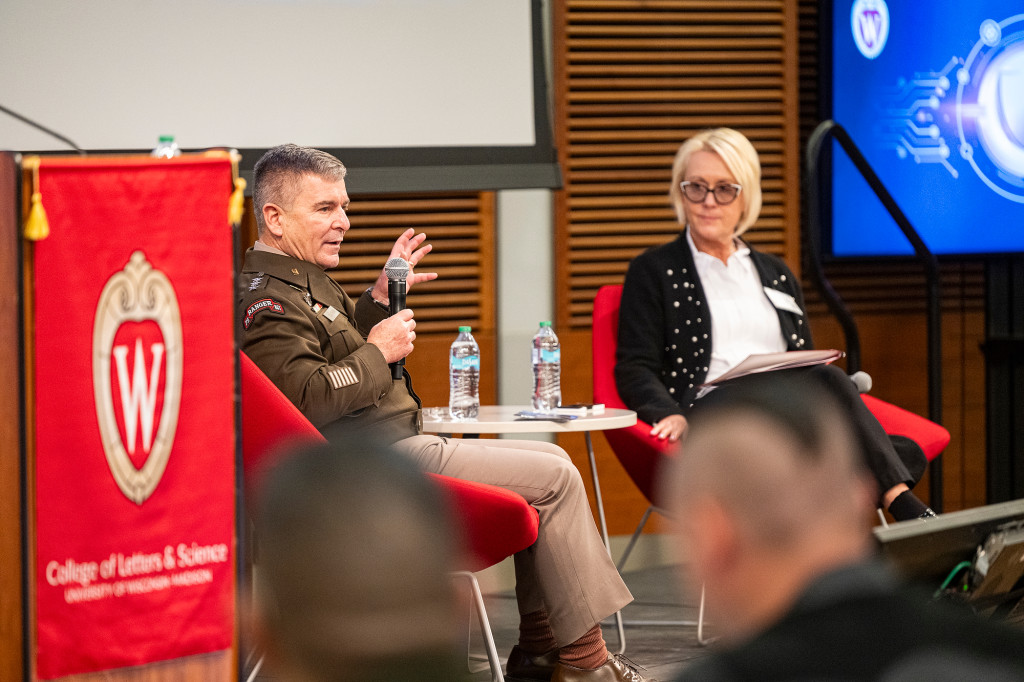
Later, in a fireside chat event, Hartman and Vice Chancellor for Research Dorota Grejner-Brzezinska discussed the critical role that academic institutions like UW–Madison play in advancing cyber capabilities, developing new technologies and preparing a capable workforce. The conversation also touched on UW's RISE-AI initiative, which is boosting the hiring of faculty who work on issues related to artificial intelligence. AI will play an increasingly important role in cyber defense, Hartman said. Photo by: Bryce Richter
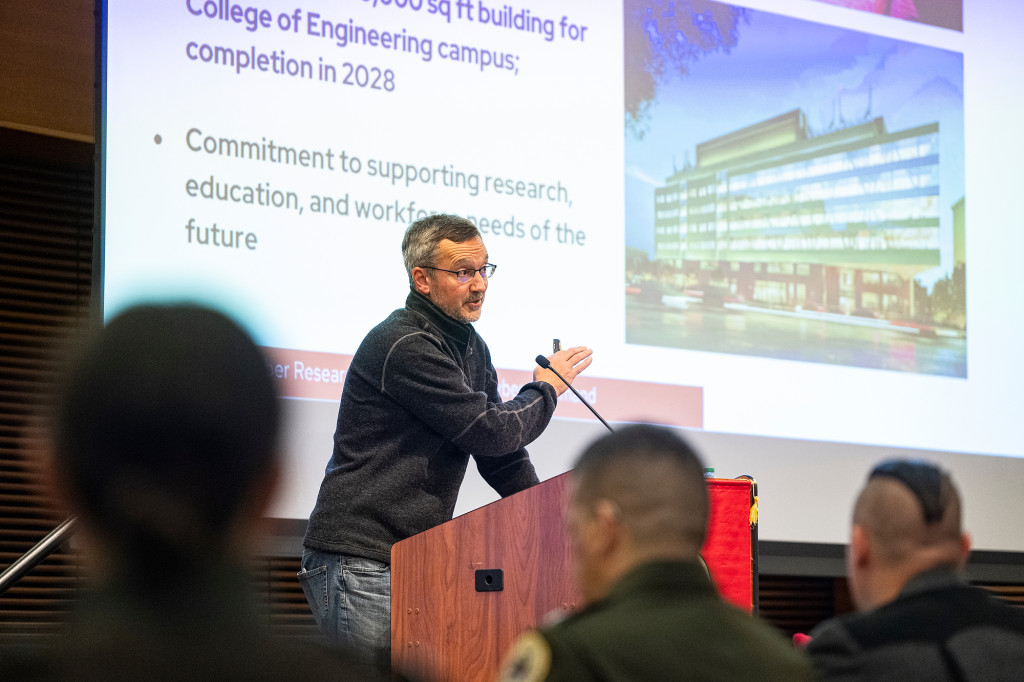
Remzi Arpaci-Dusseau, director of the School of Computer, Data & Information Sciences, kicked off the Tech Talk series. He underscored UW’s ongoing investments in cyber and high-tech fields, with the new construction of Morgridge Hall and the Philip A. Levy Engineering Center. Photo by: Bryce Richter




